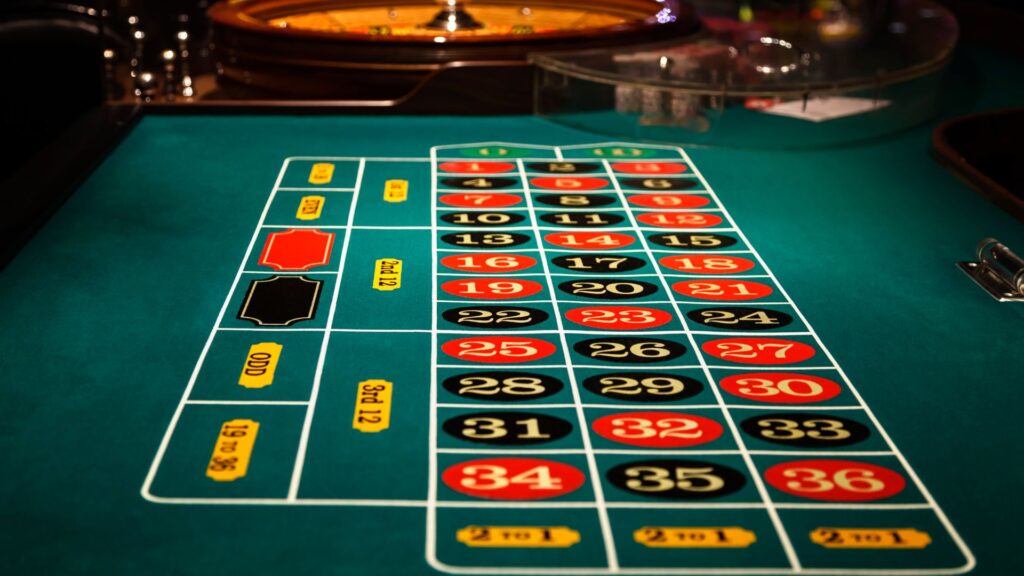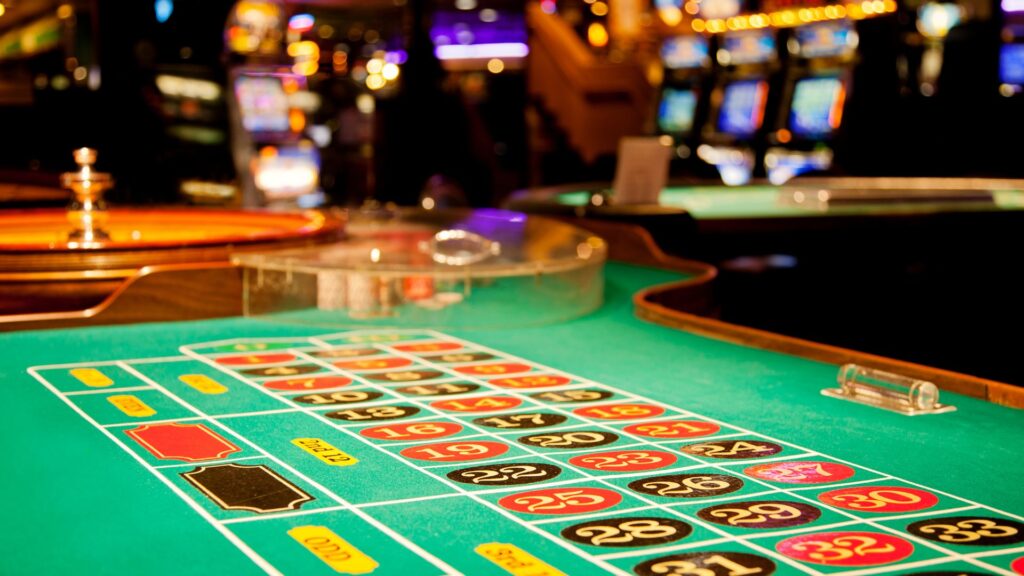Roulette is one of the most iconic and enduring casino games, recognized for its elegant spinning wheel and the enticing promise of chance. While the game seems simple, with players betting on where a ball will land on a spinning wheel, the underlying mathematics play a pivotal role in shaping its odds, strategies, and long-term outcomes. In this comprehensive guide, we’ll explore every aspect of roulette, from its history to its rules, variations, and the all-important mathematics that govern its play.
Table of Contents
- History of Roulette
- Roulette Wheel and Layout
- Basic Rules of Roulette
- The Mathematics of Roulette
- Strategies and Systems in Roulette
- Randomness, Bias, and Myths
- Online vs. Land-Based Roulette
- Advanced Mathematical Concepts in Roulette
- Conclusion: Can You Beat Roulette with Math?
1. History of Roulette
1.1 Origins of the Game
Roulette, as we know it today, can trace its origins back to 17th-century France. The name itself is derived from the French word “roulette,” meaning “little wheel.” The game is often attributed to Blaise Pascal, a famous French mathematician and inventor, who, while attempting to create a perpetual motion machine, inadvertently created the early form of the roulette wheel.
Pascal’s early work in probability theory laid the foundation for many aspects of modern gambling. In its initial stages, roulette combined elements from several other games popular at the time, including “Roly Poly” and “Even-Odd.” It eventually evolved into the game seen in casinos worldwide.
1.2 Evolution Over Time
By the late 18th century, roulette was a popular fixture in French gambling halls. In the 1800s, the game spread across Europe and into America, where it developed regional variations. In 1843, two Frenchmen, François and Louis Blanc, introduced the single-zero roulette wheel in Bad Homburg, Germany, to compete with other casinos offering less favorable odds for players.
1.3 Roulette in Modern Casinos
Today, roulette remains one of the most iconic casino games, featured in both land-based and online casinos. The game has undergone many changes, yet its core concept—betting on the outcome of a spin—remains timeless. Its simplicity, combined with the potential for high payouts, ensures that roulette continues to attract new and seasoned players alike.
2. Roulette Wheel and Layout
2.1 The Wheel Design
The roulette wheel is the heart of the game. It is a spinning disk with numbered pockets around the edge. The numbers alternate between red and black, except for the zero (and double zero in American roulette), which are green.
- European Roulette Wheel: Features 37 numbered pockets, including numbers 1 to 36 and a single zero (0).
- American Roulette Wheel: Has 38 pockets, including numbers 1 to 36, a single zero (0), and a double zero (00).
The sequence of numbers is not random but specifically designed to create a balanced distribution of even/odd, high/low, and red/black numbers, ensuring that no specific pattern can be easily exploited.
2.2 The Betting Layout
The roulette betting layout is divided into two main sections: inside and outside bets. The numbers from 1 to 36 are arranged in 12 rows of 3 numbers each, with separate areas for the zero (and double zero in American roulette).
2.3 Differences Between European and American Roulette
The main difference between European and American roulette is the number of green zero pockets. The European version has a single zero, while the American version includes an additional double zero, giving the house a higher edge.
3. Basic Rules of Roulette
3.1 How to Play
Playing roulette is straightforward. Players place bets on the table by predicting where the ball will land after the wheel is spun. The dealer then spins the wheel and throws the ball in the opposite direction. Once the ball lands in a pocket, the winning number is determined, and payouts are made accordingly.
3.2 Understanding Bets and Payouts
Roulette offers a wide variety of betting options. Here’s a breakdown of common bet types:
- Inside Bets: Placed directly on numbers or groups of numbers.
- Straight Bet (1 number) – Payout: 35:1
- Split Bet (2 adjacent numbers) – Payout: 17:1
- Street Bet (3 numbers in a row) – Payout: 11:1
- Corner Bet (4 numbers in a block) – Payout: 8:1
- Outside Bets: Placed on larger groups of numbers.
- Red/Black, Odd/Even, High/Low (1-18, 19-36) – Payout: 1:1
- Columns (12 numbers in a column) – Payout: 2:1
- Dozens (1-12, 13-24, 25-36) – Payout: 2:1
3.3 Inside and Outside Bets
Inside bets offer higher payouts with lower chances of winning, while outside bets give better odds but lower payouts. This distinction influences players’ strategies and risk tolerance.

4. The Mathematics of Roulette
4.1 House Edge and Expected Value
The house edge is the casino’s advantage over the player. In European roulette, the house edge is 2.7%, calculated as:
House Edge = (Number of Zeros) / (Total Numbers on the Wheel)
For European roulette:
1 / 37 ≈ 2.7%
In American roulette, due to the additional double zero, the house edge increases to 5.26%:
2 / 38 ≈ 5.26%
The expected value (EV) represents the average amount a player can expect to lose per bet. It is calculated by multiplying the probability of each outcome by its corresponding payout, then subtracting the house edge.
For example, in European roulette, the expected value of a straight bet is:
EV = (1/37 × 35) - (36/37 × 1) ≈ -2.7%
4.2 Probabilities of Different Bets
The probability of winning each type of bet depends on the number of outcomes that match your prediction. Here’s a look at common probabilities:
- Straight Bet (1 number): Probability = 1/37 (European), 1/38 (American)
- Red/Black (18 numbers): Probability = 18/37 (European), 18/38 (American)
- Dozens (12 numbers): Probability = 12/37 (European), 12/38 (American)
4.3 Odds and Payouts Explained
While the payouts for inside bets are higher, the odds of winning are lower, reflecting the higher risk. Conversely, outside bets offer better odds of winning but lower payouts. Understanding the relationship between odds and payouts is critical for developing a sound betting strategy.
5. Strategies and Systems in Roulette
5.1 The Martingale System
The Martingale is one of the most well-known betting systems. It involves doubling your bet after each loss, with the goal of recovering losses and winning a small profit when a win eventually occurs. Mathematically, this system relies on the assumption of infinite funds, which is impractical in real-world scenarios due to betting limits and risk of large losses.
5.2 The Fibonacci System
Based on the famous Fibonacci sequence (1, 1, 2, 3, 5, 8…), this system involves increasing bets according to the sequence after each loss. Like the Martingale, it aims to recover losses, but it escalates more gradually.
5.3 The D’Alembert Strategy
In this system, players increase their bet by one unit after a loss and decrease it by one unit after a win. This strategy assumes that wins and losses will eventually balance out, but like others, it cannot overcome the house edge in the long run.
5.4 Analyzing Long-Term Effectiveness
All betting systems fail to change the fundamental fact: the house has a built-in advantage. No system can guarantee long-term profitability, and most are susceptible to large losses during losing streaks.
6. Randomness, Bias, and Myths
6.1 The Role of Randomness
Roulette outcomes are entirely random, meaning that past results have no influence on future spins. Each spin is an independent event, with the same probabilities applying every time.
6.2 Wheel Bias and Exploiting Imperfections
In the past, players have successfully exploited biased wheels—wheels that are physically imperfect, causing certain numbers to appear more often. However, modern casinos regularly check and maintain their wheels, making it nearly impossible to find exploitable biases.
6.3 Debunking Common Roulette Myths
- Myth: After several reds in a row, black is “due” to appear.Fact: Each spin is independent, and the probability remains unchanged.
- Myth: You can predict the outcome of a spin by tracking the ball’s speed.Fact: Modern wheels are designed to prevent such predictions.
7. Online vs. Land-Based Roulette
7.1 Differences in Gameplay
While the rules of roulette remain the same, online roulette introduces some unique aspects, such as faster gameplay and more betting options.
7.2 RNG vs. Physical Wheels
Online roulette uses Random Number Generators (RNGs) to determine outcomes, which mimics the randomness of physical wheels but through algorithms.
7.3 The Mathematics of Online Roulette
The house edge and probabilities remain unchanged in online roulette, but players must ensure they are playing at reputable sites with fair RNG systems.
8. Advanced Mathematical Concepts in Roulette
8.1 Variance and Volatility
Variance refers to the swings in results players can expect over time. Even though the house edge is constant, individual outcomes can vary greatly over short periods.
8.2 Law of Large Numbers
The Law of Large Numbers dictates that the more spins you observe, the closer the results will mirror the expected probabilities. This is why casinos thrive in the long run—over time, the house edge ensures their profitability.
8.3 Gambler’s Fallacy and Cognitive Bias
The Gambler’s Fallacy is the mistaken belief that past events can influence future outcomes. In roulette, every spin is independent, and previous results do not impact future probabilities.

9. Conclusion: Can You Beat Roulette with Math?
9.1 Long-Term House Advantage
While mathematical strategies can help manage risk and enhance enjoyment, they cannot overcome the house edge. Over the long run, the house will always maintain an advantage, whether through the additional zero in European roulette or the double zero in American roulette.
9.2 The Role of Skill and Luck
Roulette is primarily a game of chance, and while skillful bet selection and bankroll management can improve your experience, the outcome of each spin is ultimately determined by luck.
By understanding the mathematical principles behind roulette, players can make more informed decisions, manage their expectations, and approach the game with a clearer understanding of its risks and rewards.

